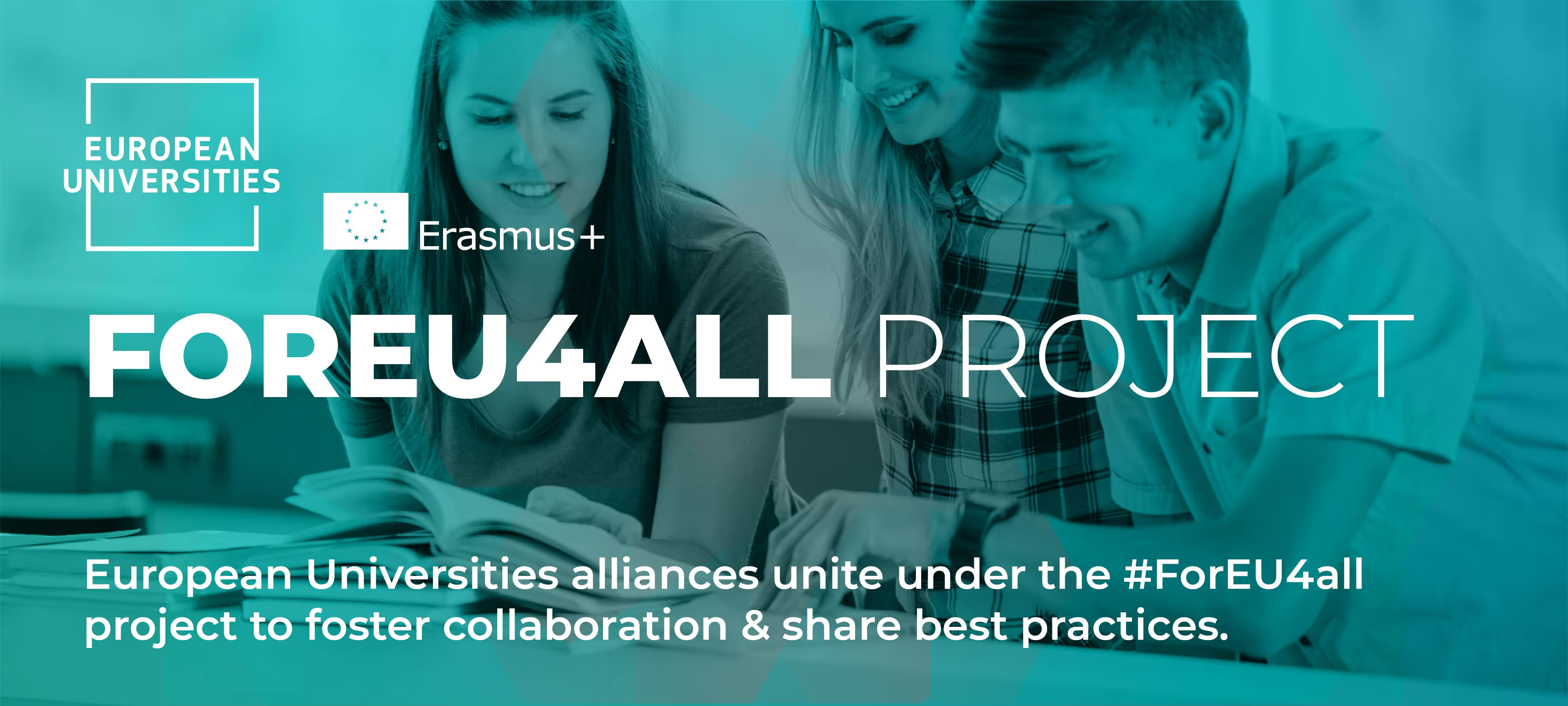

European Universities alliances are joining forces in a project called FOR-EU4All, coordinated by ECIU. The project brings together all current and future European Universities alliances—numbering over 60—into a unified, cohesive structure. The goal is to foster a collaborative and supportive environment where best practices and experiences can be shared not only among the alliances themselves but also with the broader European Higher Education (HE) sector.
As flagships of the European Education Area (EEA) and the European Research Area (ERA), European Universities alliances, such as ECIU University, are leading the way in developing new and innovative concepts for deep transnational institutional cooperation to stimulate long-lasting transformation of European higher education as a whole.
The informal alliance network FORum of European Universities (FOR-EU) has been in place since the start of the European Universities initiative (EUI). Alliance experts have been brought together across countries and institutions to form active communities on strategic topics, such as education cooperation, governance, research & innovation dimension of alliances, or student engagement. FOR-EU has currently 20+ subgroups in place and different parallel fora where the coordinators and alliances’ experts meet.
The network was chaired by Olga Wessels (Head of ECIU Brussels Office) since the start. Wessels, and thereby ECIU, will now coordinate the FOR-EU4All project. The project is needed, because due to the increasingly large-scale nature and impact of the EUI, a merger of all FOR-EU groups is necessary, and dedicated resources are required.
FOR-EU4All will reflect the fruitful collaboration and related extensive expertise that exists in FOR-EU. It will merge, formalise, and scale up the informal processes and structures that naturally developed over the past four years, and focus on supporting efficient administration, coordination, communication and dissemination. Moreover, FOR-EU4All will strongly focus on linkages with the wider HE sector, collaboration with existing networks and stakeholder representatives, as well as engagement with decision-makers on both achievements and challenges related to the EUI. This is also reflected in the project name, we simply are stronger together. Outreach activities and the dissemination of good practices and learnings are expected to help bringing transnational cooperation in HE in Europe to the next level.
European Universities alliances are committed to contributing to the realisation of both the EEA and ERA policy objectives. In collaboration with stakeholders, this project will furthermore focus on addressing challenges to transnational collaboration that persist in the EHEA to date - ranging from joint educational provision to mobility as well as digital and R&I collaboration. With FOR-EU4All, alliances are committed to working together with each other, with relevant stakeholders and policy-makers to overcome obstacles to transnational collaboration and to realise the long-lasting transformation of European higher education.
The FOR-EU4All project has been awarded 1.8 million euros by the European Commission and should last 48 months, starting on the 1st of November 2024. The European University Association – EUA, the European Students’ Union – ESU, the European Association for Quality Assurance in Higher Education – ENQA, the European Association of Institutions in Higher Education – EURASHE and the Erasmus Student Network - ESN are associated partners of the project.
